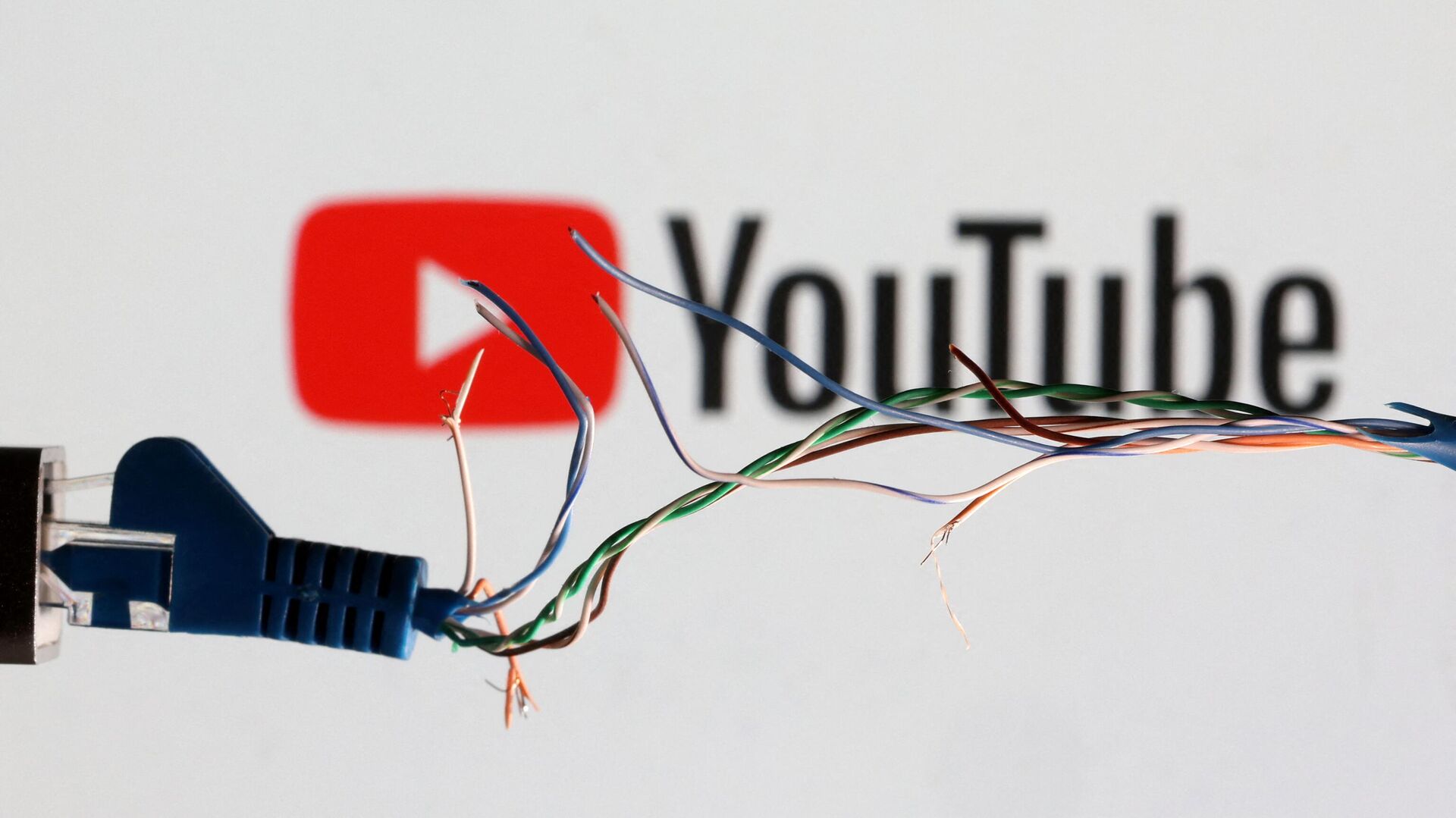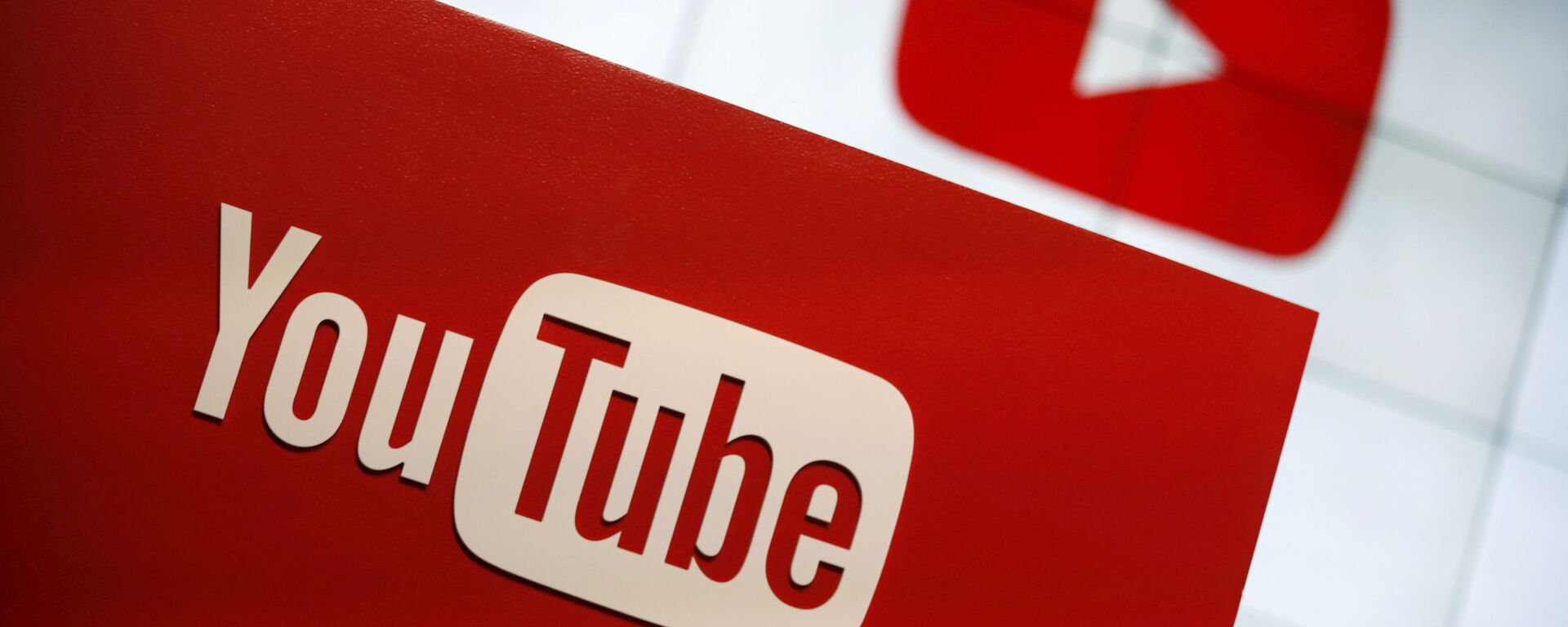https://sputnikglobe.com/20220327/how-youtubes-censorship-of-russian-pranksters-contributes-to-msm-push-for-narrative-control-1094238986.html
How YouTube’s Censorship of Russian Pranksters Contributes to MSM Push For Narrative Control
How YouTube’s Censorship of Russian Pranksters Contributes to MSM Push For Narrative Control
Sputnik International
YouTube and other Big Tech social media platforms are frequently accused of suppressing the voices of those who don't agree with particular narratives... 27.03.2022, Sputnik International
2022-03-27T18:08+0000
2022-03-27T18:08+0000
2022-03-27T18:08+0000
opinion
youtube
mainstream media
https://cdn1.img.sputnikglobe.com/img/07e6/03/1b/1094240534_0:161:3071:1888_1920x0_80_0_0_4c8a983d49bc4c43b76ae3264c22f30e.jpg
Since the beginning of Moscow's military operation in Ukraine, the video hosting platform has targeted Russian state-run media outlets, and even the channels of Soviet television and radio Gosteleradiofond, which broadcast archive materials recorded before 1999.In one of its most recent restrictions against Russian channels, YouTube blocked the account of pranksters Vovan and Lexus after the release of their conversations with UK Defence Secretary Ben Wallace and Home Secretary Priti Patel, which provided a glimpse into London's behind-the-scenes position regarding the ongoing crisis in Ukraine.While YouTube cited a "violation of community rules", critics have slammed the video hosting platform for dealing a blow to free speech in yet another act of mass censorship in the wake of the events in Ukraine.What could be behind YouTube's decision to censor the Russian pranksters?Devil in the DetailsThe move could be due to the West's desire to silence an embarrassing story that could highlight things that the UK would prefer not to be made public.Confirmation of Escalation?Hudak goes on to recall how Wallace mentioned that Britain has troops in Estonia, Poland, and Lithuania, and is "happy to be with Ukraine", thus "suggesting the potential for British troops" on Ukrainian territory. This came just ahead of US President Joe Biden's slip-up in Poland, where he spoke to US soldiers in Rzeszow and told them that when they "get there” (to Ukraine), they will see "women and young people [...] standing in front of a tank".Hudak criticised the influence that Western government entities appear to have over social media platforms - YouTube in particular. But he also had a straightforward explanation as to why the West wants to shut down any alternative sources of information."The danger in the information is that it is true or at least encourages people to question the agenda and policy of the establishment. When the public begins to disagree with or at least question its government’s actions and overall strategy and goal, it becomes far more difficult for that government to continue with its plan. To prevent this from happening, the establishment must concentrate the diversity of information available to the public, which is why we see mass censorship taking place at the moment", he explains.'Monopolising Public Conversation'Joseph Oliver Boyd Barrett, emeritus professor at Bowling Green State University, offered his own look at the decisions by YouTube and other major social media platforms. According to him, the Western media's aim is to "exclude" information it deems unsuitable for the official narrative "in ways that do not immediately attract charges of outright censorship". However, that was easier to do without the Internet, and now that the global web provides access to points of view that may differ from the mainstream, tougher tools become necessary.But why are alternative viewpoints being targeted at all? According to Barrett, it's all about "monopolising the public conversation"."The collusion of mainstream media is assured through their shared political and economic interests, by threats and incentives, and the operations of intelligence agencies that routinely penetrate media with their own people, recruit media operatives, ply media outlets with privileged information or disinformation and so on", he explains.What Can Be Done?In the wake of Big Tech companies tightening the screws and attempting to shape the narrative in their preferred way, it might be useful for media companies and outlets to invest in building "a profile on other platforms that are not part of the Big Tech conglomerate", Taylor Hudak suggests.But this alone would not be enough, he adds.YouTube blocked Vovan and Lexus' channel on Saturday, effectively removing the videos the two pranksters had shared that revealed their conversations with top UK officials. In the phone talks, the two pretended to be Ukrainian PM Denis Shmygal and managed to gain some insight into the British view of the Ukraine crisis.Defence Secretary Ben Wallace happened to share details on British arms supplies to Ukraine and views on Kiev's "plans" regarding its nuclear programme, while Home Secretary Priti Patel pledged to strip Russian tycoons of their assets and ensure the support of the UK's allies for Ukraine.After the videos emerged online, the UK officials immediately asserted that they had been "doctored" and that they are part of "Russian propaganda", calling on YouTube to remove them.YouTube was quick to comply, just as it did when Western countries imposed a slew of anti-Russian sanctions, particularly demanding that online access to Russian media outlets be restricted, while allowing anti-Russian ads on the platform. This move by Big Tech firms was slammed by Russia as censorship, with media watchdog Roskomnadzor condemning the social media platforms' actions as something that "not only violate[s] Russian law but also contradict generally accepted norms of morality".
https://sputnikglobe.com/20220326/youtube-blocks-channel-of-russian-pranksters-vovan--lexus-after-spoof-calls-with-uk-ministers-1094212385.html
Sputnik International
feedback@sputniknews.com
+74956456601
MIA „Rossiya Segodnya“
2022
Sputnik International
feedback@sputniknews.com
+74956456601
MIA „Rossiya Segodnya“
News
en_EN
Sputnik International
feedback@sputniknews.com
+74956456601
MIA „Rossiya Segodnya“
Sputnik International
feedback@sputniknews.com
+74956456601
MIA „Rossiya Segodnya“
opinion, youtube, mainstream media
opinion, youtube, mainstream media
How YouTube’s Censorship of Russian Pranksters Contributes to MSM Push For Narrative Control
YouTube and other Big Tech social media platforms are frequently accused of suppressing the voices of those who don't agree with particular narratives propagated by the so-called Western mainstream media. However, how should one interpret this type of behaviour - is it a show of force or a sign of weakness?
Since the beginning of Moscow's military operation in Ukraine, the video hosting platform has targeted Russian state-run media outlets, and even the channels of Soviet television and radio Gosteleradiofond, which broadcast archive materials recorded before 1999.
In one of its most recent restrictions against Russian channels, YouTube blocked the account of pranksters Vovan and Lexus after the release of their conversations with UK Defence Secretary Ben Wallace and Home Secretary Priti Patel, which provided a glimpse into London's behind-the-scenes position regarding the ongoing crisis in Ukraine.
While YouTube cited a "violation of community rules", critics have slammed the video hosting platform for dealing a blow to free speech in yet another act of mass censorship in the wake of the events in Ukraine.
What could be behind YouTube's decision to censor the Russian pranksters?
The move could be due to the West's desire to silence an embarrassing story that could highlight things that the UK would prefer not to be made public.
"The videos show moments of total unsophistication on behalf of UK officials. There is an interesting moment when Defence Secretary Wallace asks about the Ukrainian people’s support for joining NATO. Additionally, Wallace confirms that the British may potentially help with weapons supplies to Ukraine in the Black Sea region", Taylor Hudak, journalist and editor at AcTVism Munich, explains. "There is confirmation of escalating the war in the contents of both of these video calls".
Confirmation of Escalation?
Hudak goes on to recall how Wallace mentioned that Britain has troops in Estonia, Poland, and Lithuania, and is "happy to be with Ukraine", thus "suggesting the potential for British troops" on Ukrainian territory. This came just ahead of US President Joe Biden's slip-up in Poland, where he spoke to US soldiers in Rzeszow and told them that when they "get there” (to Ukraine), they will see "women and young people [...] standing in front of a tank".
"Now, of course, the White House is scrambling to make cover for President Biden’s slip-up here, but we are receiving confirmation of an escalation of [the] war", the journalist says.
Hudak criticised the influence that Western government entities appear to have over social media platforms - YouTube in particular. But he also had a straightforward explanation as to why the West wants to shut down any alternative sources of information.
"The danger in the information is that it is true or at least encourages people to question the agenda and policy of the establishment. When the public begins to disagree with or at least question its government’s actions and overall strategy and goal, it becomes far more difficult for that government to continue with its plan. To prevent this from happening, the establishment must concentrate the diversity of information available to the public, which is why we see mass censorship taking place at the moment", he explains.
'Monopolising Public Conversation'
Joseph Oliver Boyd Barrett, emeritus professor at Bowling Green State University, offered his own look at the decisions by YouTube and other major social media platforms. According to him, the Western media's aim is to "exclude" information it deems unsuitable for the official narrative "in ways that do not immediately attract charges of outright censorship".
However, that was easier to do without the Internet, and now that the global web provides access to points of view that may differ from the mainstream, tougher tools become necessary.
"Today, therefore, we are witnessing an ever more brutal assault by digital platforms on points of view that challenge the official narratives on matters of great importance to power. This is done by such means as pulling down channels, punishing them with denials of service, or shaming them via suspect and faulty 'fact checking' enterprises", Barrett says.
But why are alternative viewpoints being targeted at all? According to Barrett, it's all about "monopolising the public conversation".
"The collusion of mainstream media is assured through their shared political and economic interests, by threats and incentives, and the operations of intelligence agencies that routinely penetrate media with their own people, recruit media operatives, ply media outlets with privileged information or disinformation and so on", he explains.
In the wake of Big Tech companies tightening the screws and attempting to shape the narrative in their preferred way, it might be useful for media companies and outlets to invest in building "a profile on other platforms that are not part of the Big Tech conglomerate", Taylor Hudak suggests.
But this alone would not be enough, he adds.
"It is also important for the public and human rights organizations to step up and condemn this censorship. This should not be allowed and should be viewed as a direct attack on the public’s right to know and freedom of expression", Hudak explains. "The cancelling of establishment critics cannot become acceptable, and therefore widespread condemnation of such censorship is critical. It must get to the point where it is so taboo and socially unacceptable for platforms to remove accounts and take down videos for sharing an alternative viewpoint that these platforms dare never to do it".
YouTube blocked Vovan and Lexus' channel on Saturday, effectively removing the videos the two pranksters had shared that revealed their conversations with top UK officials. In the phone talks, the two pretended to be Ukrainian PM Denis Shmygal and managed to gain some insight into the British view of the Ukraine crisis.
Defence Secretary Ben Wallace happened to share details on British arms supplies to Ukraine and views on Kiev's "plans" regarding its nuclear programme, while Home Secretary Priti Patel pledged to strip Russian tycoons of their assets and ensure the support of the UK's allies for Ukraine.
After the videos emerged online, the UK officials immediately asserted that they had been "doctored" and that they are part of "Russian propaganda",
calling on YouTube to remove them.
YouTube was quick to comply, just as it did when Western countries imposed a slew of anti-Russian sanctions, particularly demanding that online access to Russian media outlets be restricted, while allowing anti-Russian ads on the platform.
This move by Big Tech firms was slammed by Russia as censorship, with media watchdog Roskomnadzor condemning the social media platforms' actions as something that "not only violate[s] Russian law but also contradict generally accepted norms of morality".


